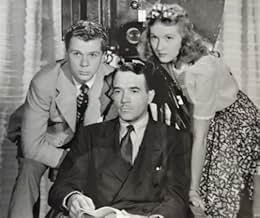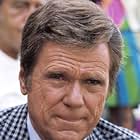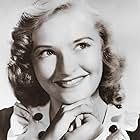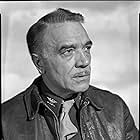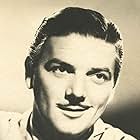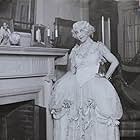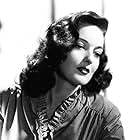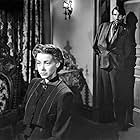Marathon Pictures is stuck with Billy Doran, Whiz Quiz radio show star but a flop in Hollywood. Ex-child star Tiny Barlow suggests that the studio remake "Skippy", the film that made him fam... Read allMarathon Pictures is stuck with Billy Doran, Whiz Quiz radio show star but a flop in Hollywood. Ex-child star Tiny Barlow suggests that the studio remake "Skippy", the film that made him famous, with himself as coach for little Billy. A. J. Colder, Marathon's Mighty Mogul, agrees... Read allMarathon Pictures is stuck with Billy Doran, Whiz Quiz radio show star but a flop in Hollywood. Ex-child star Tiny Barlow suggests that the studio remake "Skippy", the film that made him famous, with himself as coach for little Billy. A. J. Colder, Marathon's Mighty Mogul, agrees. Joan Winslow, a contract player who has never had a part, is picked to replace balky Bre... Read all
- Jenny Sullivan
- (as Edith Meisser)
- Helen Trent
- (as Katharine Booth)
- Directors
- Writers
- All cast & crew
- Production, box office & more at IMDbPro
Storyline
Did you know
- TriviaOne of over 700 Paramount productions, filmed between 1929 and 1949, which were sold to MCA/Universal in 1958 for television distribution, and have been owned and controlled by Universal ever since. Its initial telecasts took place in Seattle Tuesday 21 October 1958 on KIRO (Channel 7), in Boston Thursday 30 October 1958 on WBZ (Channel 4), and in Omaha Tuesday 25 November 1958 on KETV (Channel 7), but apparently out of tune with contemporary cultural sensibilities, further airings were few and far between. In Phoenix it was first shown 30 May 1959 on KVAR (Channel 12), and in Toledo 31 January 1960 on WTOL (Channel 11).
- ConnectionsFeatures Skippy (1931)
- SoundtracksThe Magic of Magnolias
Lyrics by Frank Loesser
Music by Victor Schertzinger
Sung by Susanna Foster (uncredited)
The problems start when Tiny meets the lovely aspiring actress and singer Joan Winslow (Susanna Foster), who will also get her chance as a result of the insubordination of the studio´s teen female star, Brenda Lee (Ann Gillis). As she and Tiny come to like each other, Abel orders them to stay apart, threatening to fire Tiny. Young Billy, wanting to help him, reacts plotting a scheme to make things turn to his wishes, and this is what the second half of the picture is about.
Susanna Foster, on the other side, was 16 when she made this picture and, same as her role, a promising new star possessing a wonderful voice with an astounding high range. She was being trained by Universal as a replacement for rebellious Miss Durbin, who precisely in 1941 was fighting against the studio to get more control on her pictures and would be on suspension for that reason (notice the coincidence). Little did they suspect that in real life Susanna would quit Hollywood even sooner that Deanna, that is, before she was 20 (Cooper, on the contrary, would successfully keep making pictures until old age). This was only her third picture and turns out to be one of the best. Because she is glamorously presented, sings several operatic and mostly melodic songs (starting with Sempre libera - another intended comparison with Miss Durbin ?) and is not second fiddle like she had been in the Great Victor Herbert and would be in several of her few future movies. This film also offers her a good story, a good cast and beautiful songs, and easy as it might seem all these ingredients were hardly seen together in her other pictures (only a dozen).
So we have a double interest : on one side, the story of a grown-up child actor conscious of his past glory, striving to come back to movie business and teaching a younger sosias to play his own former role, while trying to share the fortune and affections of the feminine new promise; and on the other, the double lecture with plenty of parallelisms to real situations of the time, with the chance to see what´s going on in the studio lot, including school lapses for young players (even if they´re already married), viewing the rushes, meeting colleagues (like Cecil B. DeMille) and seeing how scenes are being shot from both the players and the technician´s side. This double story greatly adds to the interest of a musical comedy entertaining enough for itself, and makes it one of the best pictures Susanna Foster ever made. One that decidedly deserves to be watched and better known.
Details
- Runtime1 hour 19 minutes
- Color
- Aspect ratio
- 1.37 : 1
Contribute to this page


